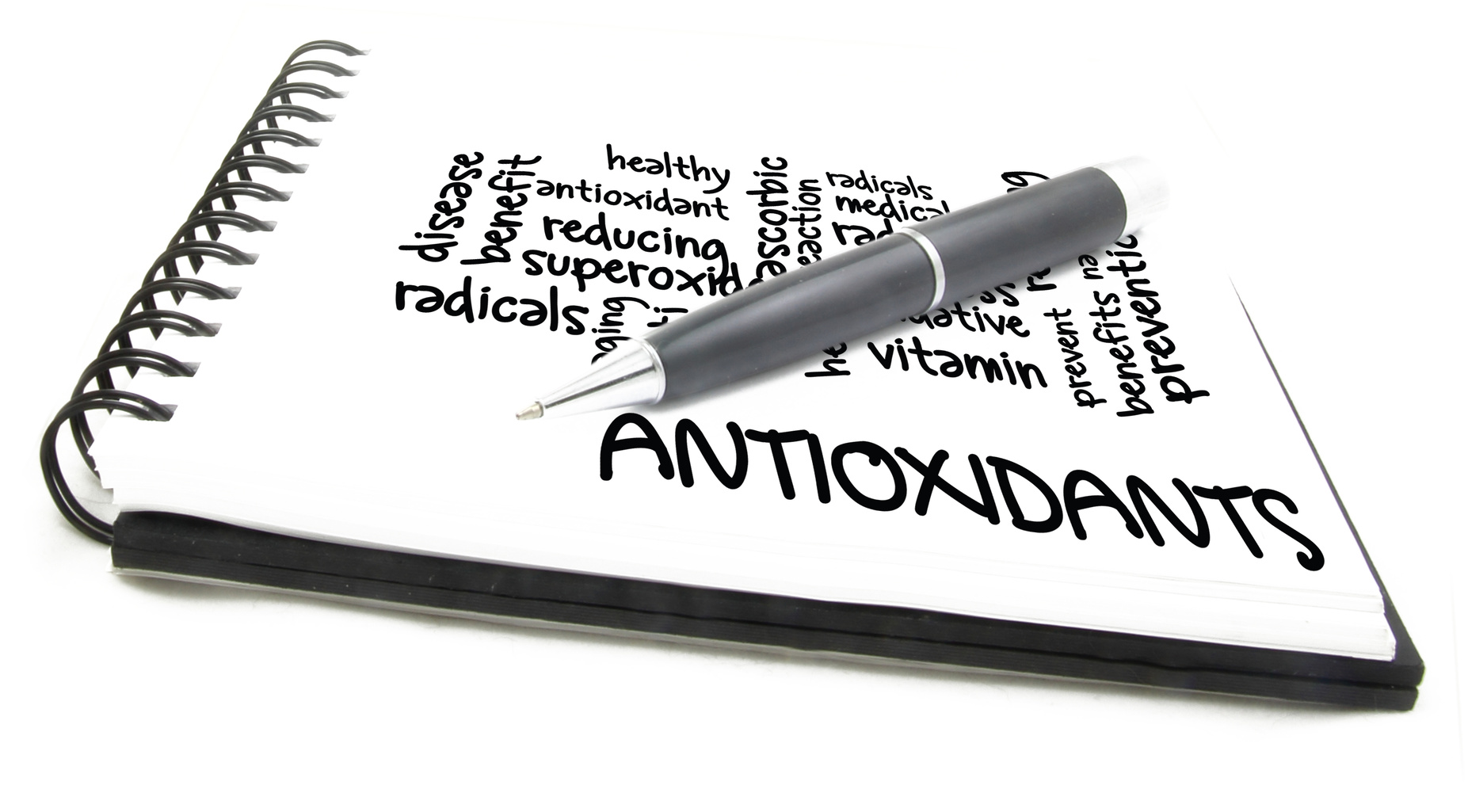Foods that have Antioxidants
When I think antioxidants, I used to think only of fruits – apples, berries, citrus, avocado, etc., etc.

… but antioxidants are also found in:
- Vegetables (yes, agree quite commonly known)
- Beans and grains
-
Nuts and seeds (for now, it's the same page as "Beans and grains" above ... please click on "Beans and grains" link)
- Herbs and spices
-
Mushrooms (these things that grow in the dark?)
- Flowers (yes! .. but please consume only the edible varieties)
- Coffee and tea (heard that one before?)
- Chocolate (some of you may be sitting up and paying attention now)
- ... and what about red wine? (some other folks are now sitting up and paying attention?
- Marine plants and seafood (oh… really?)
- Oil … good oil, that is (oil?!)
- and even water …. (Hmm … now this is getting a little too strange …)
- Zoochemicals (really?!)
Natural Foods Contain Antioxidants
Most natural foods will have antioxidants, but the amount of antioxidants will depend on:
- what type or types of antioxidants the food contains
- how much is the strength of each type of antioxidant that it contains
- how it is grown or produced
- and the servings (amounts) of the food.
It is prudent to eat a variety of natural food to get different types and
amounts of antioxidants. After all, antioxidants work best taken as "group" ... therefore, it is advisable to consume a variety of antioxidants rather than just take one or two types.
Eating the Colors of the Rainbow
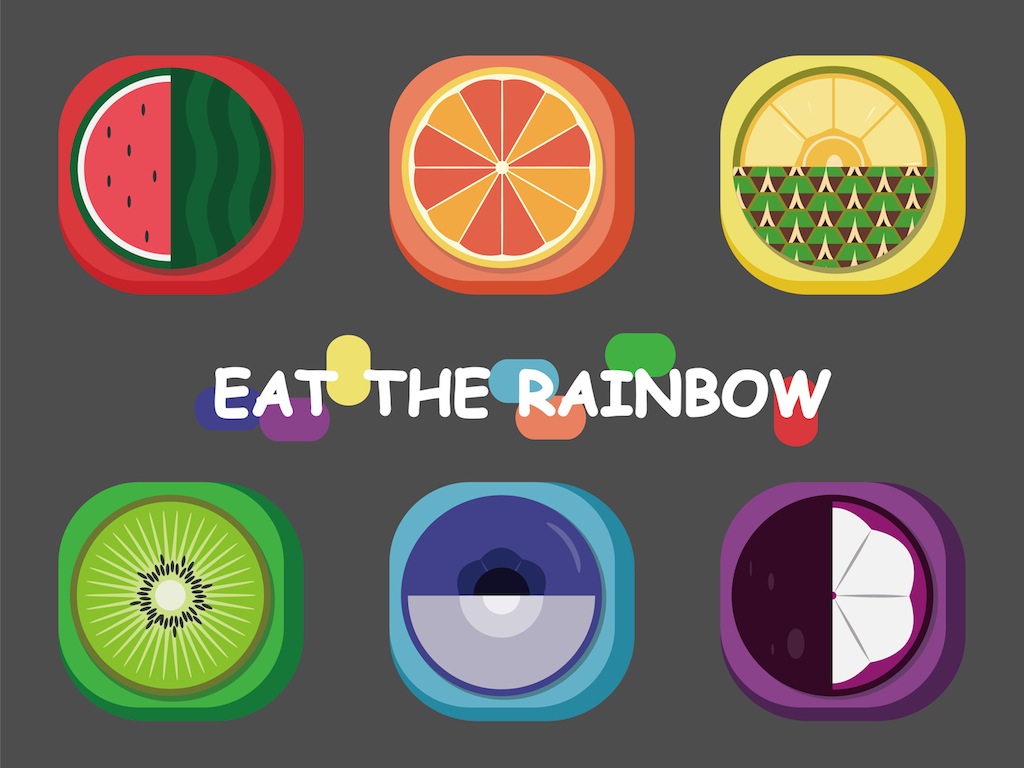
Various health organizations advocate eating 5 portions of fruits and vegetables of different colors … on a daily basis. The aim of this is to provide the required essential nutrients your body needs on a daily basis. The good news is … this will also give you as much antioxidants as possible and also the variety of antioxidants you need.
As a rule of
thumb, try to eat the “colors of the rainbow” daily or, at least 5 colors daily ... this is a form of "essential color therapy", if you like.
Bioavailability
... simply means how much of the antioxidants in the foods, can be metabolized or utilized by the body.
For example:
- some foods such as artichokes needs to be cooked before the nutrients can be released
- some antioxidants such as the fat-soluble ones, are best consumed with some fats or oils
- fruits in general when juiced, releases more enzymes than when consumed whole - hence, more of the enzymes can be consumed by the body
As such bioavailability needs to be considered, too, to get the best antioxidants out of the foods and for the best way to get the antioxidants out of some foods.
Important Vs Essential Nutrients
In very simplistic terms :
- Important Nutrients
These are nutrients that will help the body stay healthy but it’s not needed for normal body functions.
- Essential Nutrients
“An essential nutrient is a nutrient required for normal body functioning that either cannot be synthesized by the body or cannot be synthesized in amounts adequate for good health (e.g. niacin, choline), and thus must be obtained from a dietary source.” (cite : Wikipedia)
The 6 Essential Nutrients:
1. Carbohydrates
2. Protein
3. Fats (yes! this is on the list! ... Good fats, that is!)
4. Vitamins
5. Minerals
6. Water (yes … water … I , too, was quite surprised when I read this for the first time. Maybe I learned it at school but I certainly don’t remember water being an essential nutrient. In any case, it is on the list!)
Where do antioxidants stand then? ….
Well, it’s (currently) not considered an essential nutrient as a group, but of course, some of its members (such as Vitamin C and E) are considered essential.
This is partly
because currently it is not considered “required for normal body function”.
Who knows … in years to come, when its work in countering the damages caused by free radicals, which in
turn prevents degenerative diseases, may be accepted by mainstream medicine ... it might just get inducted into
the Essential Nutrients list. ;-)
Organic Foods Vs. Conventionally Produced Foods
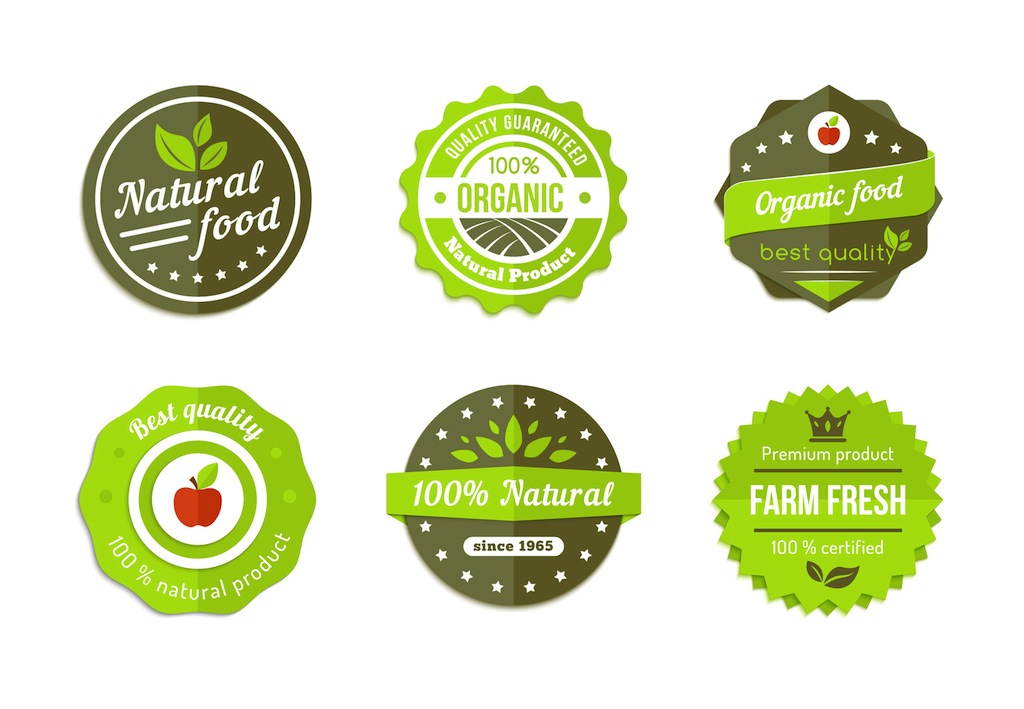
As
controversial as it may be, organic foods were how foods were mostly grown before we introduced pesticides and artificial fertilizers in farming. Organic environment provides the right environment for microorganisms to thrive.
Microorganisms in the soil are the colonies of little living creatures in the soil that help build the nutrients for the plants. The plants rely on these microorganisms to produce the nutrients in the soil. The plants then absorb these nutrients – mainly turning these inorganic nutrients to organic nutrients that human and animals live on (and thrive on!). And when we eat the plants, we get these nutrients.
- Excessive use
of pesticides and artificial fertilizers kills the microorganisms;
- and where these poisons don't kill all the microorganisms, they create an imbalance in the soil's eco system since only some microorganisms can live. Different microorganisms produce different nutrients. Hence, the soil will have some nutrients, while lacking in others.
- Additionally, excessive use of artificial fertilizers - usually consisting only 2 to 3 types of artificial nutrients - causes the soil to have excessive amounts of these nutrients which have been artificially added. Thus, creating an ecological (nutrients) imbalance of the soil.
These poisons do not provide the right/conducive environment for the microorganisms to thrive, let alone live. The absence of these microorganisms from the ecologically imbalanced soil causes the absence of certain nutrients. In the case of the heavy use of these chemicals, where most of these microorganisms are killed, renders the soil nutrient poor.
Due to the absence of certain nutrients, the plant while it looks the same (or may even look bigger) could actually be lacking in some nutrients.
Raw Foods Vs. Cooked Foods
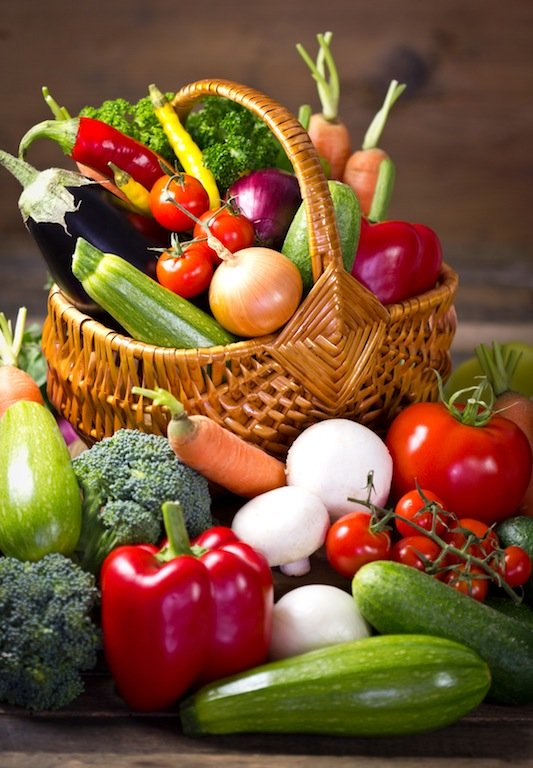
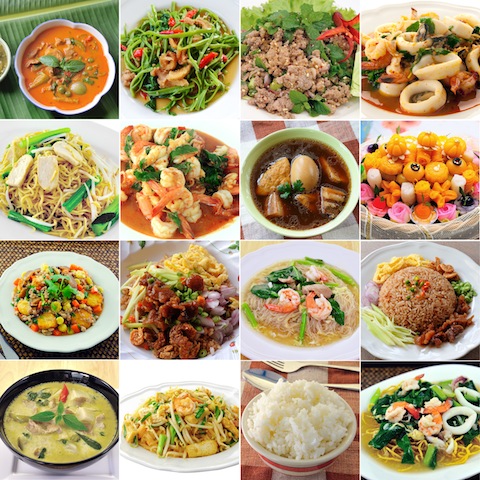
In general the more food is cooked, the more nutrients are destroyed in the process. However, there are some foods that needs to be cooked to “activate” its nutrients (such as, artichokes) and some can’t be eaten raw at all.
Needless to say, those that can be eaten raw are best eaten in raw form.
In terms of ways of cooking, steamed in most cases is better than stir-fry. With roasted or BBQ, more nutrients are destroyed. Frying not only destroy the nutrients but create more free radicals that will be consumed by the body - from both the heat from frying and, the heated oil; and possibly the type of oil used. So, the body effectively takes in fewer nutrients with fried foods and need more antioxidants to eliminate the additional free radicals … netting out, if we are lucky, zero effect on the body … and when we are not so lucky, free radicals are left in the body … which is usually the case with fried foods.
If you choose to eat roast, BBQ or fried foods, then you may need more antioxidants to clear the free radicals or do a detox from time to time.
Juicing Vs. Whole Foods
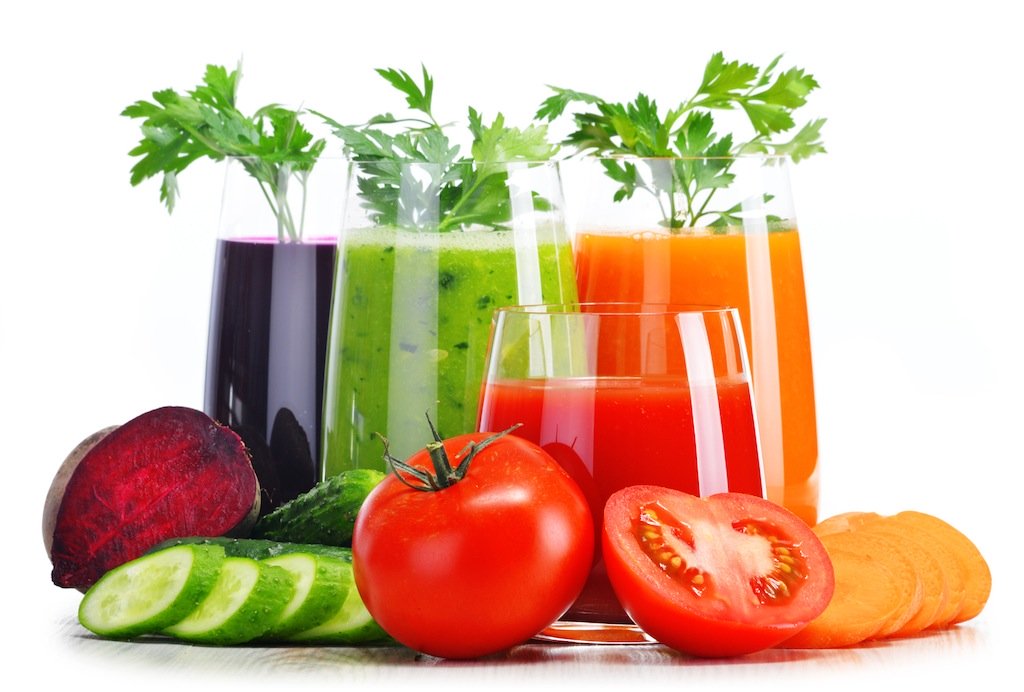
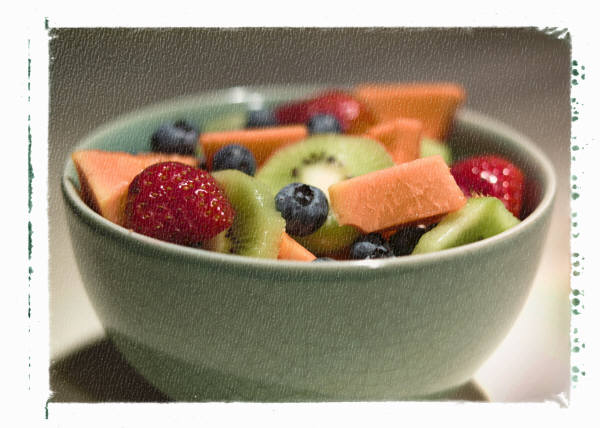
Juicing extract the nutrients from the foods,and depending on the type of juicer, some nutrients (especially enzymes) are destroyed by the (machine) speed of of the juicing process.
Whole foods taken raw (where it can be eaten raw) will be the best way to consume the foods. However, juicing actually helps to release some enzymes that would otherwise not be released if eaten whole. Also, by juicing, more can be consumed than if eaten whole. For example, with juicing, say each glass of apple juice will contain 3 apples; most people will only eat one whole apple a day, but can drink a glass of juice from 3 apples; based on this comparison, with juicing one is able to consume more nutrients in a day.
However, with juicing we miss out on the fiber. The solution then, could be to blend the fruits - juice and pulp can be consumed - into a smoothie. Blending on the other hand, can cause some enzymes to be destroyed - mainly, from the heat of the rotating blades. One way to minimize this is to blend refrigerated (cold) fruits.
So, looking at the pros and cons ... what's best?
To me, it's about what you can fit into your day or your daily routine ... Of course, while the ideal is eating/juicing 5 to 7 colors fruits daily, but it's totally understandable that some of us may not be able to fit that regime into our busy daily schedule.
So, as long as you fit in what works best for you ... it is something better than nothing. And no matter how busy, have, at least, an apple a day ... like the old adage "An apple a day keeps the doctors away."
Refined Vs. Whole Foods
Processed and packaged foods and juices will inevitably reduce the amount and types of nutrients. For example, most processed and packed fruit juices are heat treated to prolong shelf life. Heat treatment will destroy nutrients, especially the enzymes.
Some packaged and processed foods and juices contains addictive which when consumed, forms free radicals in the body. The net result of consuming these processed and packaged fruits could be more free radicals left in the body – while you can utilize some of the nutrients, you still need to eliminate these free radicals with more antioxidants, or a good detox, or cleanse.
Similarly, processed or refined grains still contain some nutrients compared to the raw form, but how much is left will depend on the refinement and processes used.
Frozen Vs. Fresh Foods
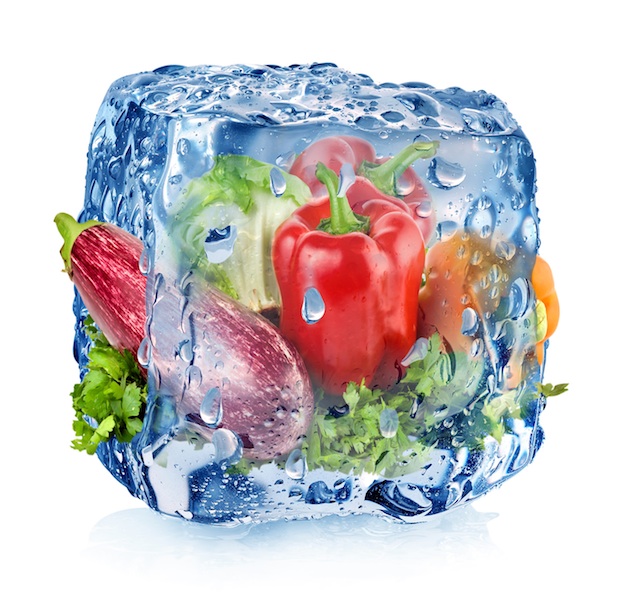

Without a
doubt, fresh foods win hand down. But, freezing foods allows us to have access to the foods (and different antioxidant contents) that
is out of season, any time of the year.
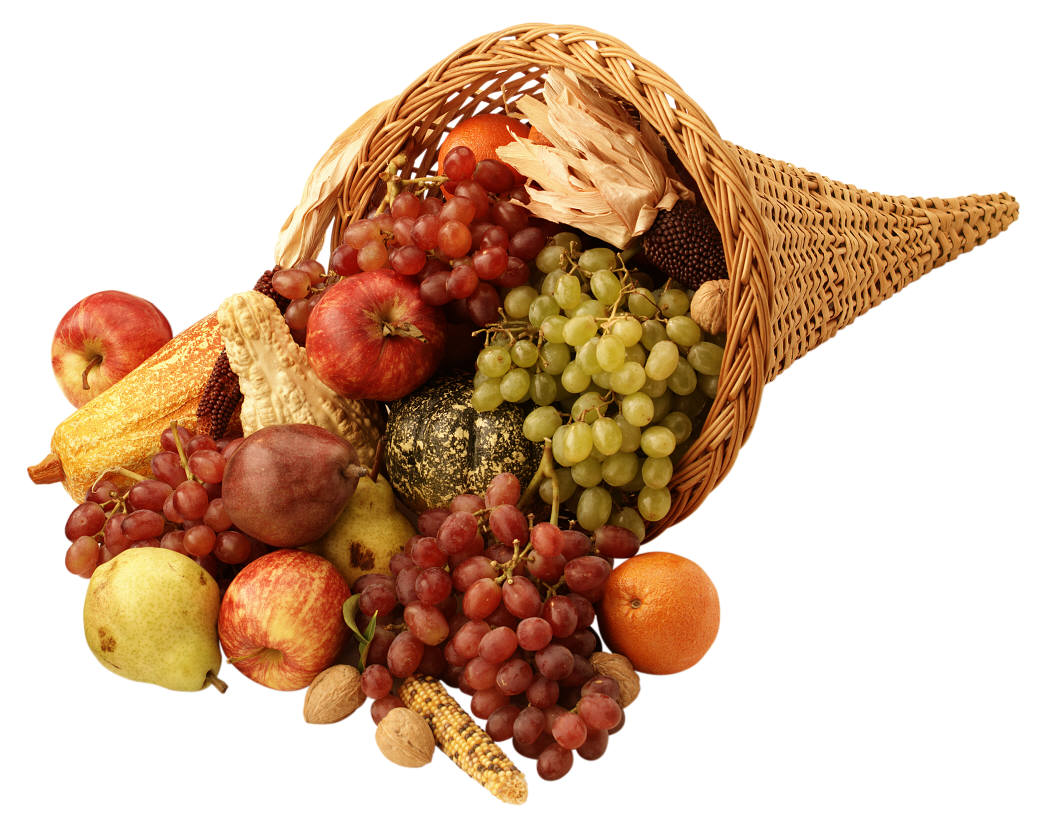 Autumn Fruits
Autumn Fruits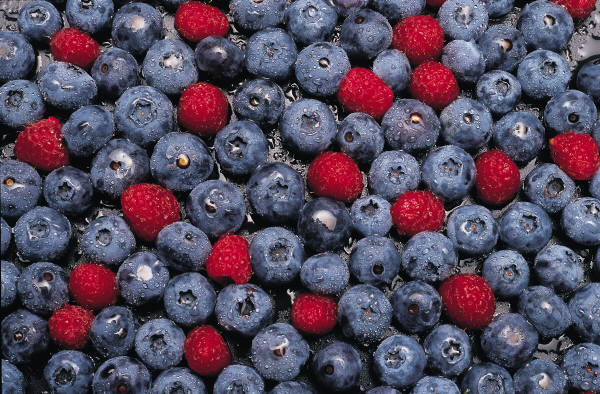 Summer Berries
Summer BerriesHowever, there is a proposition that we should be eating foods according to the seasons, as our body's needs varies by the seasons. Nature had taken that into consideration when producing foods for the various seasons to suit our seasonal needs. Something interesting here to consider?
Dried Vs. Fresh Foods
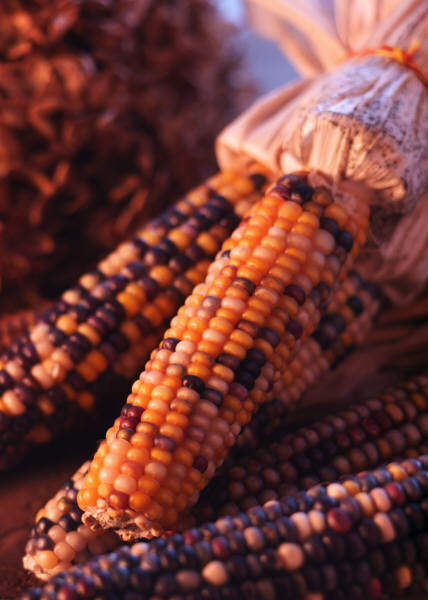
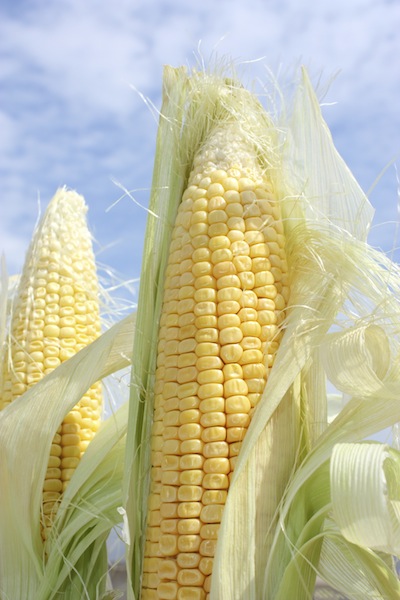
Similarly,
without a doubt fresh foods wins here, too. Dried foods will have less enzymes - as some enzymes are lost in the drying process - and water content that are available when fresh – even with the best
methods of drying. However, for some foods, there are no loss in certain nutrients,
such as Vitamins, in the drying process.
Natural Vs. Supplement
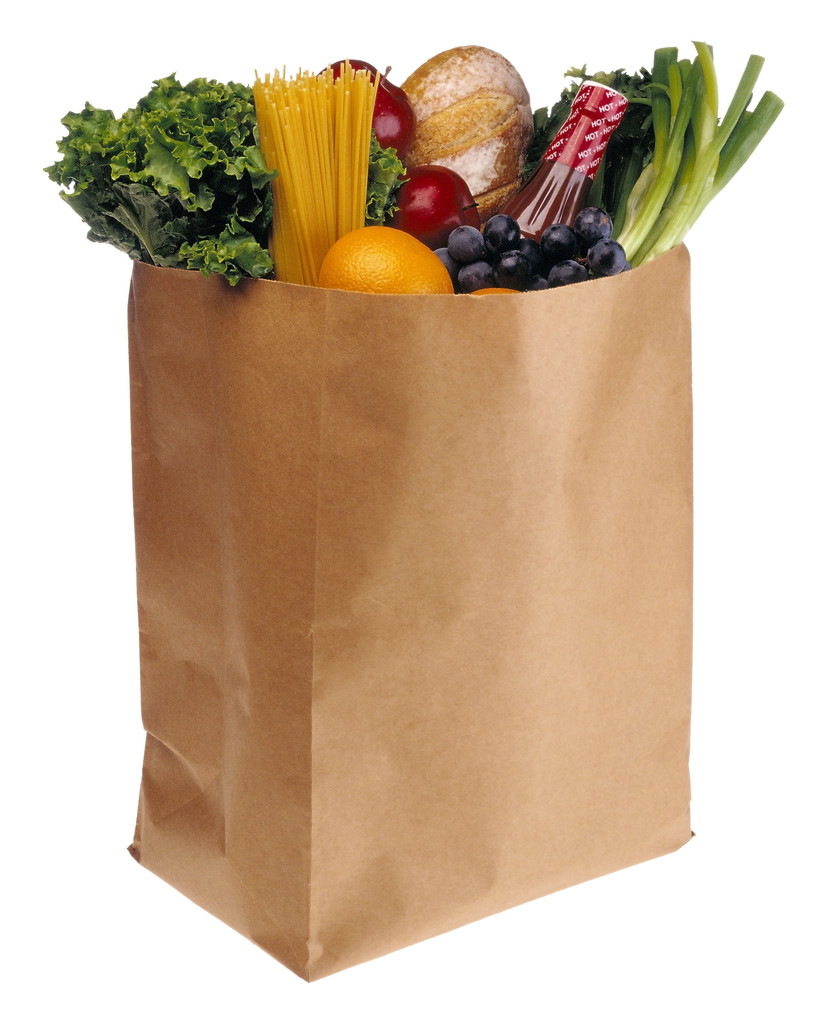
Why then do we need to take supplement if we can find all the nutrients we want in the (raw) foods that we (can) eat ?
Sometimes, even when we are eating the right foods, we may not be eating sufficient amounts to give us that health effect we need or want.
For example, garlic is known to reduce cholesterol but it must of a certain type of garlic (aged garlic) and be consumed in the right amounts. Firstly, aged garlic comes only as "supplement" form and not in raw form. The amount of garlic needed is not possible to be consumed as food and hence, needs to be in supplement form.
Does one need supplements?
Some of the questions we need to ask :
- are you eating all the required nutrients you need?
> especially the 6 essential nutrients
- are
you eating enough of all the required nutrients you need?
> again, especially the 6 essential nutrients ...
> eating the right types of nutrients we need
> can the foods provided the right nutrients we need
> can the foods provided the right amount of these nutrients we need
- is your body in the right healthy condition to utilize/absorb all the nutrients you eat?
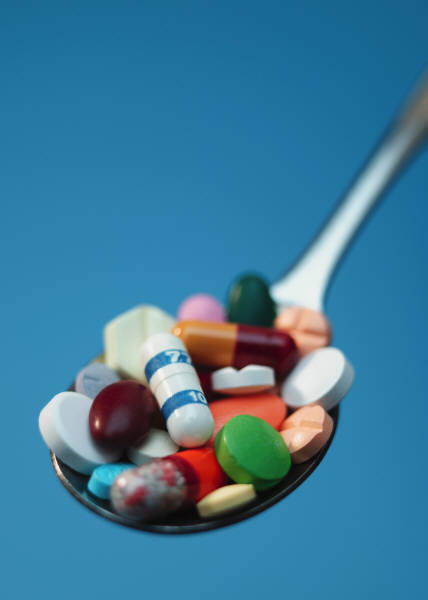
If any one of
the above applies to you, then you may need to supplement . Hence, its name …
just that, “supplement” … excuse the pun. (But remember that this is only a general guide, you still need to seek advise from your health advisor before you consider taking any supplements - please see "Disclaimer".)
Having said that, it is also not a healthy choice to rely solely on supplements to get your required nutrients. You still need balance!!! … get most of what you need from the right foods and supplement the rest, but only if you need to.
When taking supplements, a point to bear in mind … it is about balance (always!) and being informed (always!) about what supplements you are taking or intending to take.
When trying out supplements, note any changes to your body - regardless of whether you think it’s a positive change or a negative one. Track and tweak, if necessary ... so that you can ultimately provide what's best for your body.
Do you have a PASSION you want to share with the world??? What better exposure than the INTERNET?!!!
Want to consider?
Well, you will need a place to "host" (place) your site, then the tools to build, run as well as track the performance of your Masterpiece!
OR, if you already have a site, but find that you are paying too much for tools and apps to run and track your site ...
Here's an All-in-One Solution for you! Hosting, as well as Tools to build, run and track!
